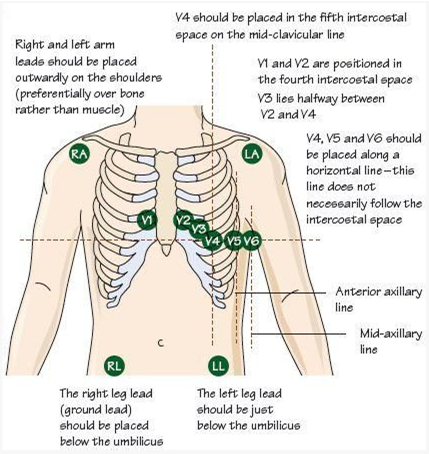The nurse is caring for a client with hypertension who is on alpha blockers. The nurse is concerned about postural hypotension. Which information should the nurse include in the teaching plan?
Change positions slowly
Check blood pressure every day for signs of rebound hypertension
Do not become dependent on canes, walkers, or handrails.
Eat plenty of salty food to prevent hypotension
The Correct Answer is A
The information that the nurse should include in the teaching plan for a client with hypertension who is on alpha blockers and at risk for postural hypotension is: Change positions slowly.
Alpha blockers are a class of medications commonly prescribed for hypertension. One potential side effect of alpha blockers is postural hypotension, which is a sudden drop in blood pressure when changing positions, such as from sitting to standing. To minimize the risk of postural hypotension, it is important for the client to change positions slowly. The nurse should advise the client to take their time when transitioning from lying down, sitting, or standing, allowing their body to adjust and stabilize their blood pressure.

The other options are not appropriate or helpful in managing postural hypotension:
Check blood pressure every day for signs of rebound hypertension: Rebound hypertension refers to a sudden increase in blood pressure that can occur when discontinuing certain antihypertensive medications. It is not directly related to postural hypotension. Regular blood pressure monitoring is important for managing hypertension, but it is not specifically related to postural hypotension or alpha blockers.
Do not become dependent on canes, walkers, or handrails: Assistive devices like canes, walkers, or handrails can provide support and stability for individuals who experience balance issues or are at risk of falls. It is not necessary to discourage their use unless there are specific contraindications or safety concerns.
Eat plenty of salty food to prevent hypotension: Increasing salt intake is generally not recommended for individuals with hypertension or those at risk of postural hypotension. A high-sodium diet can contribute to elevated blood pressure and is generally discouraged. The nurse should instead encourage a balanced diet that includes appropriate sodium intake based on the client's healthcare provider's recommendations.
Nursing Test Bank
Naxlex Comprehensive Predictor Exams
Related Questions
Correct Answer is B
Explanation
The most appropriate nursing intervention to improve adhesion of the ECG leads on a male client with abundant chest hair is to clip the chest hair with the patient's permission before applying the leads. Chest hair can interfere with the adhesion of the ECG leads, resulting in poor signal quality and potentially affecting the accuracy of the ECG recording. By clipping the chest hair, the nurse can improve the contact between the skin and the ECG leads, allowing for better adhesion and signal transmission.
It is important to obtain the patient's permission before clipping the chest hair to respect their autonomy and ensure their comfort during the procedure. The nurse should explain the reason for clipping the hair and address any concerns or questions the patient may have.
Let's review the other options and explain why they are not the most appropriate interventions:
Using alcohol swabs to clean the skin before applying the leads: While cleaning the skin with alcohol swabs is a routine practice to remove oils and dirt that can affect adhesion, it may not be sufficient in the presence of abundant chest hair. Clipping the hair would be more effective in this situation.
Applying the leads to the arms and legs only: This option would not provide an accurate 12-lead ECG recording, as the chest leads are essential for evaluating the electrical activity of the heart from different angles. It is important to have the leads properly placed on the chest for an accurate assessment.
Rescheduling the ECG: Unless there are other valid reasons for rescheduling, such as a medical condition that contraindicates the procedure, rescheduling solely due to abundant chest hair would be unnecessary. Clipping the hair is a practical and effective solution to improve adhesion.

Correct Answer is D
Explanation
"Have you recently taken any antihistamines?": This question is not directly related to the client's high blood pressure. Antihistamines are medications used to treat allergic reactions and have minimal impact on blood pressure.
"Have there been recent stressful events in your life?": Stress can affect blood pressure levels, so this question is relevant. Stressful events can trigger temporary increases in blood pressure. However, it is important to note that consistently high blood pressure readings require medical attention beyond stress management alone.
"Did you take any acetaminophen today?": Acetaminophen (also known as paracetamol) is a pain reliever and fever reducer. It does not have a significant impact on blood pressure levels. Therefore, this question may not directly address the issue of high blood pressure.
"Have you consistently taken your medications?" : This question is the most appropriate follow-up question for a client with a history of high blood pressure. It addresses medication adherence, which is crucial for managing hypertension. The client's blood pressure reading of 210/106 mm Hg suggests that their current medication regimen may not be effectively controlling their blood pressure. Assessing medication consistency will help determine if the elevated blood pressure is due to non-adherence or if a change in medication is required.
Whether you are a student looking to ace your exams or a practicing nurse seeking to enhance your expertise , our nursing education contents will empower you with the confidence and competence to make a difference in the lives of patients and become a respected leader in the healthcare field.
Visit Naxlex, invest in your future and unlock endless possibilities with our unparalleled nursing education contents today
Report Wrong Answer on the Current Question
Do you disagree with the answer? If yes, what is your expected answer? Explain.
Kindly be descriptive with the issue you are facing.
